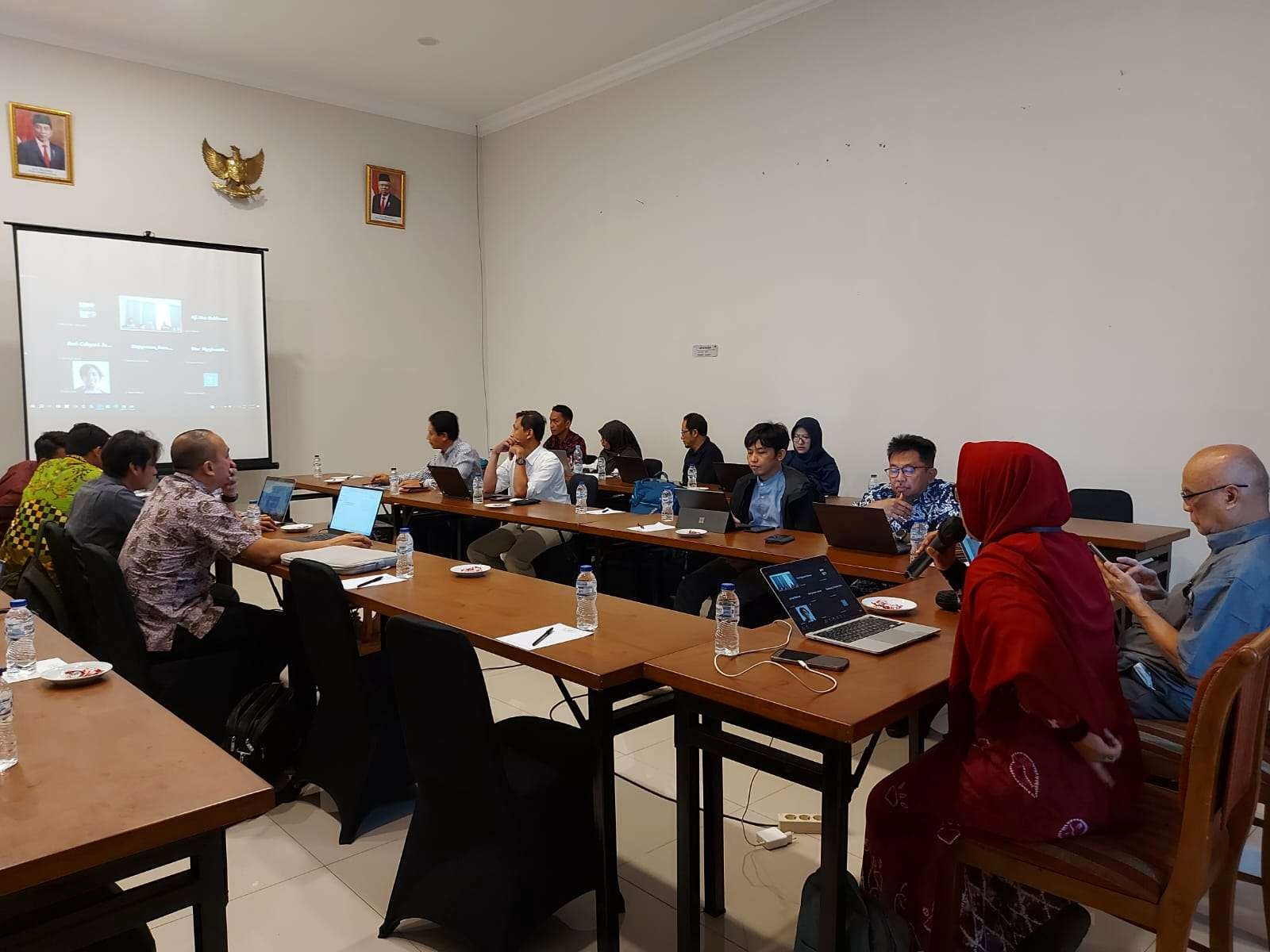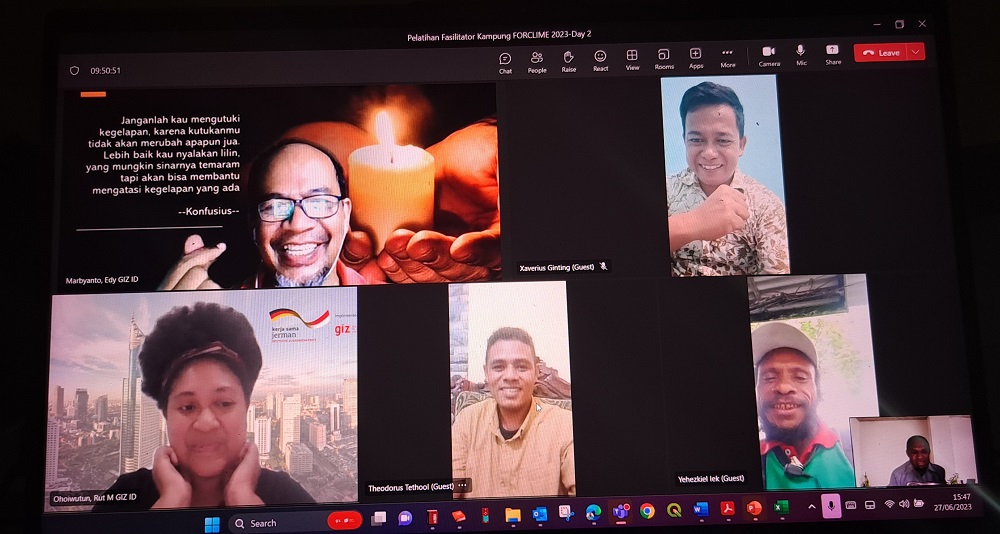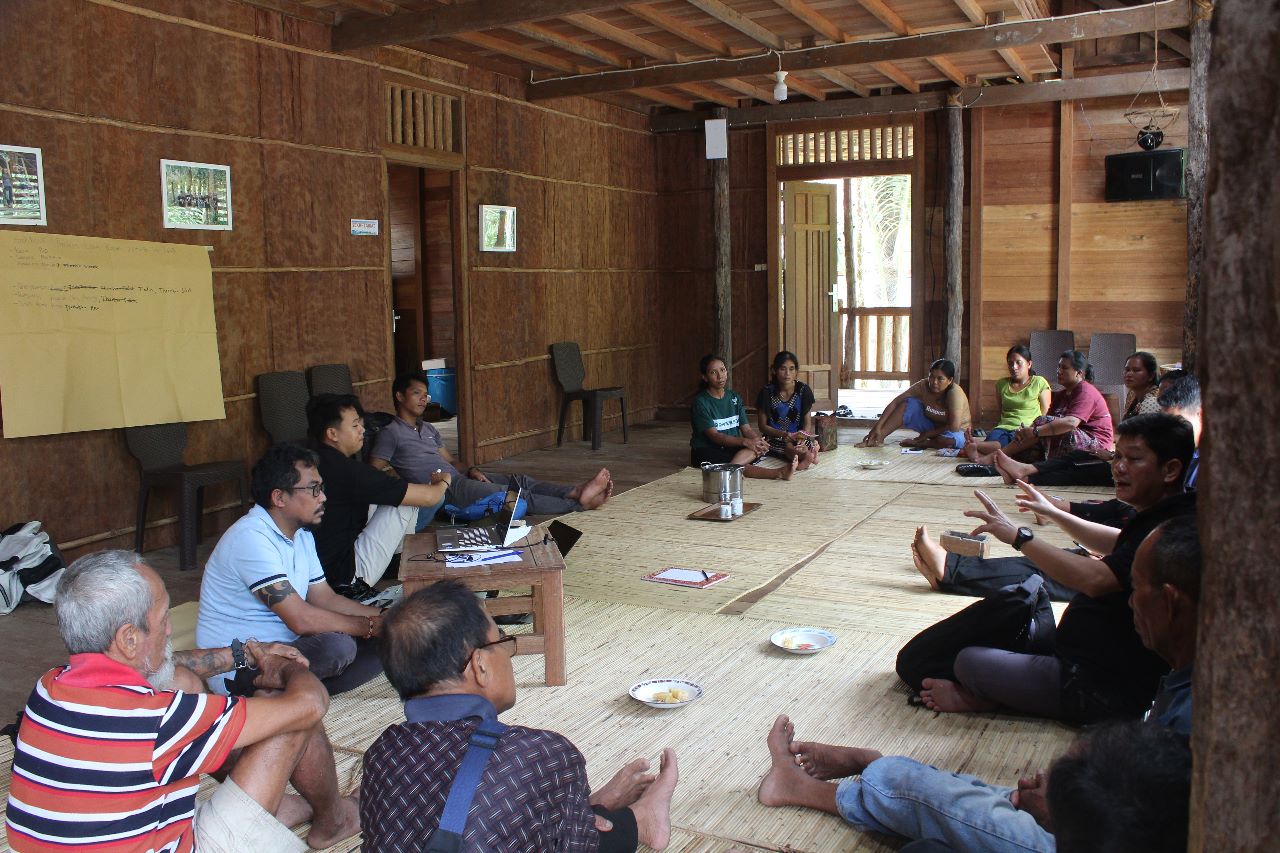FORCLIME
Forests and Climate Change ProgrammeTechnical Cooperation (TC Module)

Select your language

Since 2022, FORCLIME has been supporting Bappenas as it completes a study that is being aimed at optimizing the utilization of the forest bioeconomy within Indonesia. The initial concept that underpins forest bioeconomy development is outlined in the draft version of Indonesia's National Long-Term Development Plan (RPJPN) for 2025-2045. To refine this concept into a five-year planning document or a National Medium-Term Development Plan (RPJMN), Bappenas is planning to develop a roadmap for forest bioeconomy development within Indonesia. To achieve this, an FGD was recently held with various stakeholders that are directly involved in the development of the forest bioeconomy industry, including the Ministry of Environment and Forestry (MoEF) and the Indonesian Chamber of Commerce and Industry (Kadin).
The FGD took place on Thursday, 6 July 2023 in Bogor and was opened by Dr. Nur Hygiawati Rahayu, ST, MSc., the Director of Forestry and Conservation of Water Resources at Bappenas. In her opening remarks, Dr. Nur Hygiawati highlighted the framework for the forest bioeconomy study and the importance of downstream forestry businesses in terms of enhancing the added value of forest products. The opening session was followed by a presentation that was given by Dr. Tatang Hernas Soerawidjaja from the Bandung Institute of Technology, who discussed the potential development of plant-based oils within the Indonesian bioeconomy.
The first speaker from the MoEF was Dr. Riva Rovani, S.Hut., M.Agr. from the Directorate of Forest Resources Inventory and Monitoring. Dr. Riva presented forest data that had been monitored by MoEF, including data on land and forest cover, forest potential, vegetation distribution and carbon stock potential. The periodically monitored data provided by MoEF will hopefully serve as the basis for the determination of forest bioeconomy development potential within Indonesia.
The next speaker was Mr. Hasanuddin, S.Hut., M.Hum. from the Directorate of Forest Processing and Marketing Development at the MoEF. During his address, Mr. Hasanuddin discussed multi-sectoral forestry business processes and the importance of linking the upstream and downstream sectors in order to build a robust industry. The Directorate-General of Sustainable Forest Management at the MoEF has been facilitating forestry-based micro-, small- and medium-scale enterprises (MSMEs) in the development of the Timber Legality Verification System (SVLK) and support for downstreaming within the forestry sector. Moreover, the hope is that in the future, carbon derivative regulations will also be developed that extend to the marketplace.
Representing Kadin was Mr. Silverius Oscar Unggul, S.P., M.M., the Vice-Chairman of the Environment and Forestry Division, who discussed Kadin's various efforts to promote Regenerative Forestry Business (RFB) that involve the private sector. Kadin is planning to establish a pilot project in the future that covers an area of 200,000 hectares to support various forestry businesses, including the development of the bioeconomy.
Among other topics that were also discussed during the FGD was the importance of establishing a comprehensive forest potential database in Indonesia based on the country’s regions and their resources (which include resins and latex). This database will then be subsequently used in order to develop policies and determine suitable industrial scales. In addition, the importance of market demand assessments was also emphasized during the meeting, as such assessments will ensure that bioeconomy products are appropriately targeted and provide added value in relation to any investments that are made.
For more information, please contact:
Nurdita Rahmadani, Junior Advisor for Monitoring, Evaluation and Reporting
Pipin Permadi, Senior Advisor and Liaison Officer

In 2022, FORCLIME recruited nine village facilitators in order to facilitate the implementation of community empowerment activities in the following supported villages: Bikar and Emmaus in Tambrauw Regency; Haha and Wendi in South Sorong Regency; Babrongko, Dosai and Tablasupa in Jayapura Regency; and Wasur and Yanggandur in Merauke Regency.
This year, FORCLIME is continuing to implement its community empowerment programme in these villages. However, some of the village facilitators involved in the programme are newcomers who need need to gain an adequate understanding of FORCLIME targets, policies and working mechanisms, particularly in relation to the empowerment of village communities. The recent training sessions were held online from 26 - 27 June 2023 with FORCLIME advisors acting as resource personnel. The training sessions also involved input from village facilitators who first joined the programme in 2022 and who were thus able to share their experiences with the newcomers, as well as refresh their knowledge with new information.
Through these training sessions, participants gained knowledge of the following subjects: (1) The various concepts that underlie Forest Management Units (KPH) and Social Forestry (PS); (2) An introduction to the implementation of basic data surveys through the application of the Participatory Rural Appraisal (PRA) method; and (3) Facilitation techniques for forest farmer groups, particularly the three pillars of Social Forestry: Institutional Management, Area Management and Business Management.
Next month, the training participants will receive additional materials relating to the following topics: (1) Knowledge Management (KM); (2) Introduction to Risk Management; (3) Administration standards at GIZ; (4) Development of a work plan for the July - December 2023 period.
For more information, please contact:
Edy Marbyanto, Strategic Area Manager for Human Capacity Development
Mohammad Sidiq, Strategic Area Manager for Sustainable Forest Management and Coordinator for Papua and West Papua Provinces

Consultation and coordination with related parties regarding the development of the climate funding pro-posals of the Provincial Government of West Kalimantan, which is working in conjunction with GIZ as an Accreditation Body, and regarding funding originating from the Green Climate Fund (GCF), are being car-ried out at the national, provincial and district levels. In this regard, public consultation activities related to the proposals were carried out across five districts in May 2023, specifically the districts of Ketapang, Kubu Raya, Sintang, Sanggau and Kapuas Hulu.
In terms of the completeness of the proposals, various documents that relate to traditional communities living across the five districts will need to be prepared. As a result, information on community involvement has been collected and involved the conducting of interviews with village heads, local village representa-tives, community leaders, traditional leaders, traditional women’s leaders and local youth leaders. Inter-views across the five districts were held from 23 May to 16 June 2023 and were assisted by consultants funded by SFF (a bilateral source of funding that can be utilized to examine and prepare activities/technical cooperation projects such as the West Kalimantan GCF). The results of these interviews will be compiled into an Indigenous Peoples Plan document which will become part of the overall climate funding proposal made for the GCF. This document will set out the roles and the involvement of traditional communities regarding the project implementation plan, as well as any positive and negative impacts that may ultimate-ly emerge and be felt by communities during the project implementation period.
For more information, please contact:
Dwi Wahyu Asti, SP, M.Si., Provincial Environment and Forestry Service
Jumtani, Advisor for Sustainable Forest Management and GCF Focal Point
Wandojo Siswanto, Strategic Area Manager for Forest Policy and Climate Change
 |
Supported By: |
  |